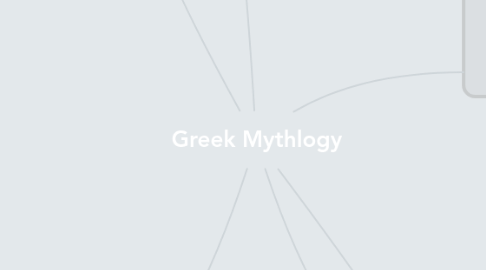Greek Mythlogy
by Ana Luiza

1. is the body of myths originally told by the ancient Greeks and a genre of Ancient Greek folklore.
2. Mythical narration plays an important role in nearly every genre of Greek literature.
3. Other gods and goddesses sometimes included in the roster of Olympians are: Hades (Pluto): god of the underworld Hestia (Vesta): goddess of home and family Eros (Cupid): god of sex and minion to Aphrodite
4. The twelve main Olympians are: Zeus (Jupiter, in Roman mythology): the king of all the gods (and father to many) and god of weather, law and fate Hera (Juno): the queen of the gods and goddess of women and marriage Aphrodite (Venus): goddess of beauty and love Apollo (Apollo): god of prophesy, music and poetry and knowledge Ares (Mars): god of war Artemis (Diana): goddess of hunting, animals and childbirth Athena (Minerva): goddess of wisdom and defense Demeter (Ceres): goddess of agriculture and grain Dionysos (Bacchus): god of wine, pleasure and festivity Hephaistos (Vulcan): god of fire, metalworking and sculpture Hermes (Mercury): god of travel, hospitality and trade and Zeus’s personal messenger Poseidon (Neptune): god of the sea
5. These stories concern the origin and the nature of the world, the lives and activities of deities, heroes, and mythological creatures, and the origins and significance of the ancient Greeks' own cult and ritual practices.
6. Greek Mythology: The Olympians At the center of Greek mythology is the pantheon of deities who were said to live on Mount Olympus, the highest mountain in Greece. From their perch, they ruled every aspect of human life. Olympian gods and goddesses looked like men and women (though they could change themselves into animals and other things) and were–as many myths recounted–vulnerable to human foibles and passions.


